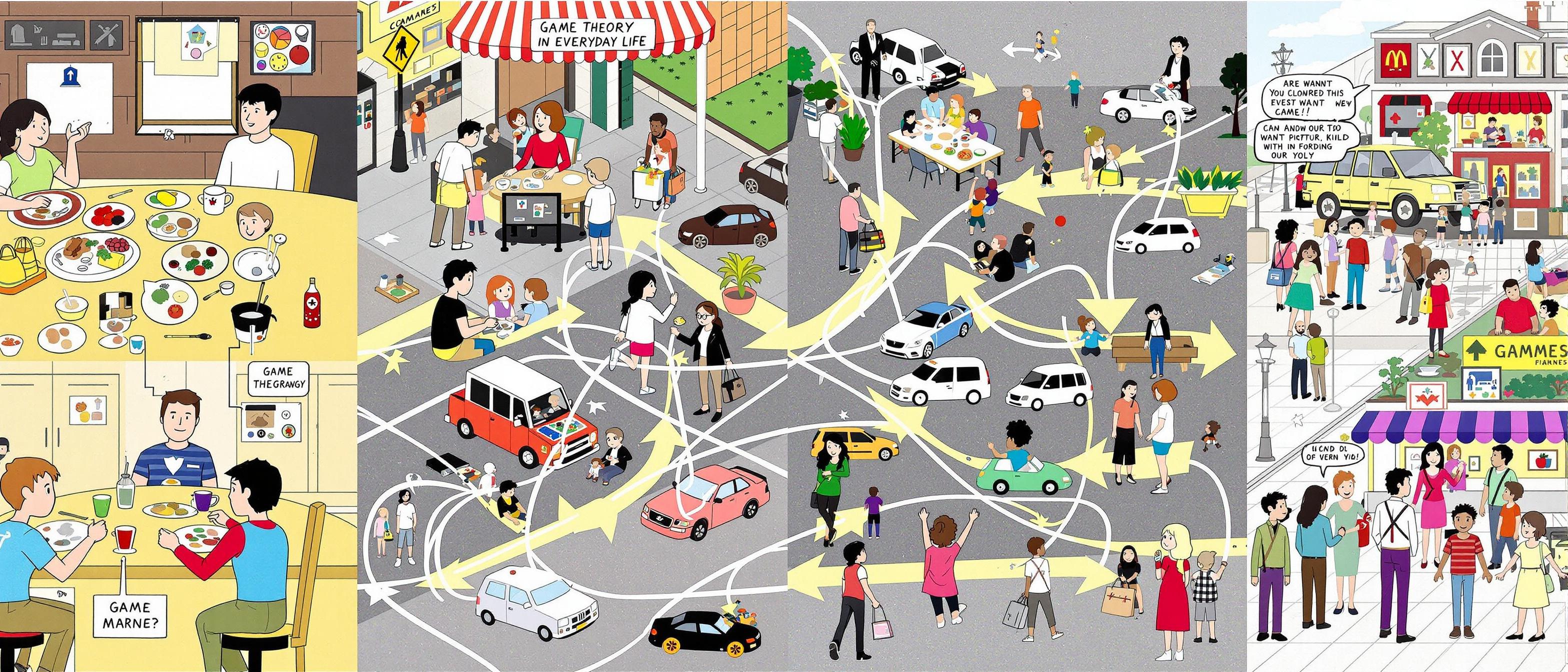The Strategic World of Game Theory: How It Impacts Your Daily Life
Game theory is the study of strategic decision-making in situations involving multiple players. But did you know that game theory is all around us, influencing our daily lives in ways we may not even realize? In this article, we'll explore how game theory plays out in everyday situations and also examine its connection to single-player decision problems.
Game Theory in Everyday Life
From simple interactions with friends and family to complex negotiations in the workplace, game theory is at play. Here are a few examples:
- Stag Hunt: Collaborating with colleagues on a project or working together as a team to achieve a common goal.
- Coordination Game: Deciding where to meet friends for dinner or choosing a movie to watch together. Everyone benefits from coordinating, but individual preferences may differ.
- Chicken Game: Negotiating who does household chores or deciding who gives way when merging into traffic. Being too aggressive or too passive can have negative consequences.
- Battle of the Sexes: A couple deciding how to spend their evening, with different preferences for activities.
- Public Goods Game: Contributing to a communal resource, like office coffee funds or group study materials. Everyone benefits, but there's a temptation to free-ride on others' efforts.
The Connection to Microeconomics and Decision Theory
Game theory is closely related to microeconomics and decision theory. But what about single-player decision problems? Can game theory be applied to these situations as well?
Applying Tools from Game Theory to Single-Player Decision Problems
While game theory traditionally focuses on strategic interactions between multiple players, its tools and concepts can also be applied to single-player decision problems in various ways:
- Decisions Under Uncertainty: Using game-theoretic frameworks, "nature" can be modeled as a probabilistic opponent, helping to optimize choices, such as deciding whether to carry an umbrella based on weather forecasts.
- Dynamic Optimization: Techniques from game theory can assist in balancing short-term rewards and long-term objectives, such as planning savings or allocating resources over time.
- Optimal Stopping Problems: Tools like decision trees and backward induction, common in game theory, can help identify the best timing for actions, such as selling stock or ending a search based on future expectations.
In essence, tools derived from game theory—like extensive form and normal form representations—can be adapted to analyze single-player decision scenarios, providing structured approaches to complex decision-making.
By recognizing the strategic elements of game theory in our daily lives, we can make more informed decisions and navigate complex situations with greater ease. Whether it's negotiating with others or making solo decisions, game theory offers valuable insights to help us achieve our goals.
